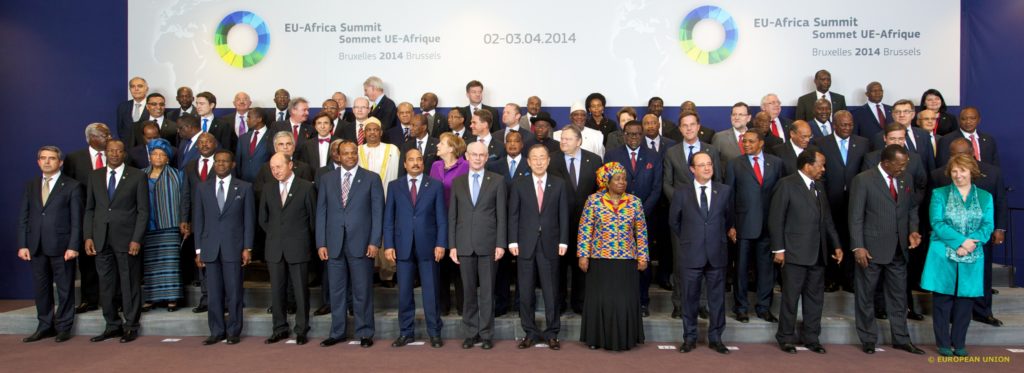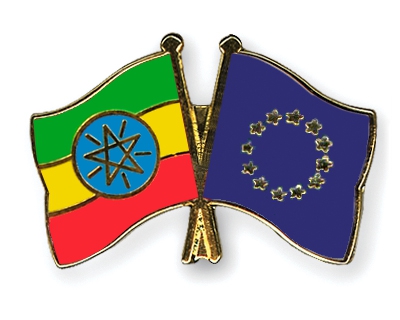This article was originally published in the 6th issue (January 2017) of The Ethiopian Messenger, the quarterly magazine of the Embassy of Ethiopia in Brussels.
Since the beginning of the current migration crisis, several measures have been agreed by the EU partners to address the root causes of migration. However, the actions implemented so far have not been responding effectively to the mounting migration pressure. To really address the issue, Europe should look at Africa beyond the current problems and crisis faced by the continent.
The history of migration is as old as that of humanity. It already existed in the past, is still a very noticeable phenomenon today, and it will continue to exist in the future, notably in countries undergoing traumatic economic and political transformations, where there is conflict, persecution, where individuals are in search of better life elsewhere.
Current measures are insufficient
Acknowledging this reality and in order to address the root cause of the current migration problem, the meeting between the European Union (EU) and African Heads of States and Governments in April 2014 in Brussels under the theme “Investing in people, prosperity and peace” adopted a Joint declaration on mobility and agreed to prepare an Action Plan for the period 2014-2017. In this declaration, they agreed to:
“…..foster synergies between migration and development, including by reducing the costs of remittances, enhancing the role and engagement of the diaspora and consolidating the African Institute for Remittances. To better organize intra and inter-regional labour mobility and that of business persons. To enhance cooperation to address trafficking in human beings, notably by strengthening partnership and cooperation on prevention, protection and prosecution. To cooperate on irregular migration, addressing all its relevant aspects, including strengthened migration management, return and readmission as well as the promotion of alternatives to irregular migration. And finally, to work together in the field of international protection and asylum, and towards promoting respect of the human rights of migrants.” (Article 36)
Even though the level of migration flows in 2014 had not yet reached height they would attain in subsequent years, the problem was well articulated and indicated possible remedies that could be used in the current migration crisis. However, the main problem has since then been laying in the implementation of decisions taken.

Later in November 2015, leaders of the two continents gathered in Malta and adopted five pillars and 16 priority areas to address migration-related problems and established a 1.8 billion euros EU Trust Fund for Africa to finance projects to implement these priorities in 33 African countries. Nearly a year and half after the Malta Summit, the operational committee established to govern the Trust fund approved nearly €1.589 billion under three windows, namely the Sahel-Lake Chad, the Horn of Africa and the North Africa windows. Of the approved fund, projects worth of 600 million euros (37.75%) have been contracted out and only 163 million euros (10.25%) of the total approved has been spent. This clearly shows the complexity and slowness of this process which involves several countries
It has also to be noted that the implementation of nearly 50% of the projects was given to NGOs, International Organizations and EU Member States. Local institutions that could have used this opportunity to build their capacity will therefore miss this chance. Moreover, despite the emphasis given during both meetings, efforts made to promote legal migration and to encourage remittances were minimal.
Of course, many positive steps were taken in this framework. Several discussions and researches which could contribute to address migration problem were organized. The cooperation in the area of prevention, protection and prosecution is also worth mentioning. But if one raises the question whether the activities taken so far are responding to the mounting migration pressure, particularly in countries of origin, the answer is clearly negative.
In addition to that, the mass deportations, construction of fences, xenophobia and growing nationalism prevailing today in Europe have raised scepticism on Africa’s side on wether the EU is still cooperating with Africa on the issue of migration with candour. More recently, the affirmation by the High Representative Federica Mogherini in Malta during the Senior officials meeting on the 8th of February 2017 that Europe “unlike others, will not build a wall”, the announcement of a European external investment plan (whose implementation is yet to be seen) and the job compact initiated by the Commission were some indications that the EU is willing to extend a credible offer to Africa. However, this is not enough.
Looking at Africa beyond the current problems
Europe should look at Africa beyond the current problems and crisis faced by the continent. Those problems will be overcome, but to do so, Africa needs a credible friend to help at this critical moment. For historical and geographical reasons, Europe stands on the top to do this.
After the end of the Second World War, Europe was as devastated, if not more devastated than many African and Middle East countries today. There are arguments that both migration and refugees played a significant role in Europe’s reconstruction after the war. The actions taken to reconstruct the continent were far-sighted, and bore fruits. The stable and prosperous Europe of today is in part the result of such courageous and generous initiatives by countries both inside and outside Europe. As Europe was saved by the implementation of the Marshall plan, so could Africa. That is why Germany established an “African Marshall plan”.
Jean-Pierre Lehmann in his article, “Refugee and migrants: Europe’s past History and future challenges”, articulately said that “the current economic hardships, social transformations, political oppressions, ethnic hostilities, religious and racial persecutions, and traumas of wars that are occurring at various degrees of intensity in the Middle East, Africa and parts of Asia in many fundamental ways reflect what occurred in the not too distant past in Europe.”
The important lesson to draw here is that Europe was largely able to overcome tremendous challenges, build a stable and prosperous continent and overcome the traumas of WWII thanks to the Marshall Plan.
Migration problems in Africa remain largely the responsibility of African countries. Europe cannot and should not fix those problems on behalf of African authorities.
The EU and Africa can either join hands to fix the problem in the foreseeable future, or Europe can wait until African countries fix their problem, regardless of the time it may take, while investing huge budgets to close its borders in the meantime.
A viable solution would be to take multi-action efforts ranging from generous support to boost Africa’s economy through FDI and financial support to infrastructure construction, to easing the currently difficult EU trade policies to help African farmers and manufacturers increase their production, expand their activities and employ more people. Among the critical missing links in the development of most African countries is the absence of skilled manpower who can adopt or innovate in new technologies and improve the way things are done locally. For this to happen, the EU and its Member States have a moral obligation to offer more scholarships and avail encouragement for those who pursue their education in Europe to return back to their countries and help themselves and their people.
EU and AU leaders are scheduled to meet in Abidjan in November 2017. Of the potential agenda items to be discussed, migration will be on the top. The real question is: will the leaders as usual, simply “call”, “reiterate”, “acknowledge” the need for action, or will they dig into the core of the matter and come up with workable policies aimed at opening EU’s markets to Africa, support Africa private sector both in finance and networking, and encourage EU’s investors to invest in Africa?
Focusing on business ties will certainly benefit both continents. Strong and flexible ties can be regarded, more than anything else, as the guarantee to quell the irregular migration crisis looming in Europe and Africa. The EU should look at tomorrow’s Africa as a potential market for Europe, both in terms of import and export instead of barely interacting with the world’s future most populated continent as a region in need of help.




